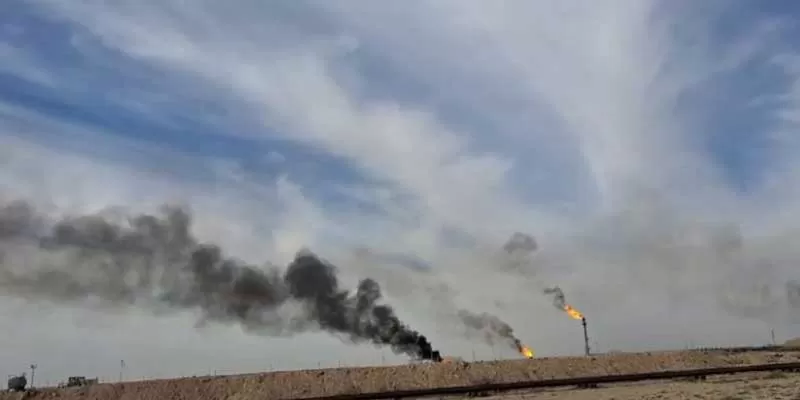Legal action has been initiated against British energy giant BP after the grieving father, Hussein Julood, lost his son to leukaemia. The cause of the cancer is alleged to be caused by gas flaring at Iraq's largest oil field. The family lives near Rumaila Field in the southern province of Basra. The family is demanding compensation for their son's medical treatment.
In 2022, a BBC investigation into the elevated risk of cancer near oil fields in Iraq documented Ali's life as part of the probe.
The father seeks BP to cover the expenses for his 21-year-old's medical treatment, including chemotherapy and a bone marrow transplant, as well as funeral costs following his passing in April last year. On April 22, he forwarded a Letter Before Action to BP outlining his claim, which serves as the initial step before initiating legal action. Hausfeld & Co., the law firm representing Julood, stated that if no agreement is reached, the subsequent stage would involve court proceedings.
He expressed that no amount of money could compensate for his son's death. However, the 55-year-old father of seven, from his humble abode, stated that claiming compensation is his right. He clarified that his action is not solely for Ali but also for the impoverished, ill, and deceased individuals in the region.
Julood hopes that a successful compensation claim against BP will encourage oil companies to exercise greater caution regarding flaring. BP, a major foreign player in Iraq's oil sector, has a long history of oil production in the country dating back to the 1920s, when it was under British mandate. In the Rumaila field, BP operates in partnership with the state-owned Basra Oil Company.
Ali, a football aficionado, was initially diagnosed in 2016. Julood claimed that the doctor inquired about the family's residence during a medical visit. The doctor came to the conclusion that Ali had cancer after he revealed that they lived close to flare stacks.
Burning excess gas during oil production is known as gas flaring. Large volumes of carbon dioxide, methane, and black soot are produced, posing a threat to public health and the environment. In a statement regarding Ali's case last month, Greenpeace Middle East and North Africa warned that the procedure produces a number of cancer-linked pollutants, including benzene.
However, capturing, treating, and marketing the related gas is more expensive than gas flaring. Thick black smoke from gas flares is seen floating through Julood's neighbourhood as he gets closer to his house. Children seem oblivious to the risk as they play football or ride their bicycles outside.
In response to the BBC's inquiry, the UK's largest oil company claimed that it has never controlled the Rumaila field and that it receives payments in the form of crude oil allocations as a fee for the technical services that it renders. Additionally, it conveyed concern about the matter and stated that, as of the previous year, it was working with the partners at Rumaila to review and resolve the issues brought up. According to BP, throughout the previous seven years, gas flaring at the field has decreased by more than 65%, and preparations are in place to further reduce emissions.
According to World Bank data, Iraq's flare volume reached around 18 billion cubic metres in 2022, ranking it second globally behind Russia.
However, the government has promised to phase out the practice in the hopes that Iraq's power plants can run on collected gas instead. Prime Minister Mohamed Shia al-Sudani stated earlier this month that he intended to do away with gas flaring in three to five years. The oil ministry of Iraq funds a number of health-related initiatives. In February, the health ministry declared that it had reached a deal with the Basra Oil Company to construct a cancer centre in the province located in the south.
Julood had to resort to selling his family's gold and furniture, obtaining a bank loan, and borrowing money from friends to cover Ali's medical expenses and funeral costs, leaving him with little resources. He mentioned that many others are also unable to relocate away from the Rumaila field. According to Hausfeld & Co., Iraqi law prohibits oil refineries from being situated closer than 10 kilometres (six miles) from residential areas.
However, in Rumaila, it was stated that evidence suggests flaring occurs just five kilometres from local communities. Julood remarked that despite the challenges and health concerns, they continue to reside there. He expressed hope that his legal action would raise awareness about gas flaring and compel oil companies to offer free medical aid to the ill and assist the impoverished who cannot relocate.





















